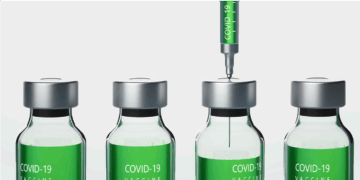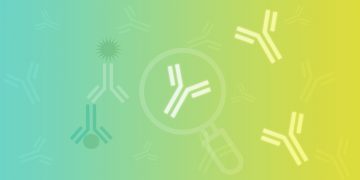
Immune Surveillance in SARS-CoV-2 Vaccine Development
The ability to characterize the target of cell-mediated immune response is crucial during vaccine development. In studying the characterization of SARS-CoV-2 infection pathogenesis in humans, a research team identified neutralizing antibodies that provided context for vaccine antigen design. Discover how the ZE5 Cell Analyzer was used to detect activation-induced markers, measure intracellular cytokines, and identify spike protein–specific antibodies in a rapid, high-throughput manner.

How FACS, Genetic Screens, and the HAP1 Cell Line Uncover the Biological Mechanisms of Cancer
Genetic screens are powerful tools for finding genes associated with a particular phenotype. They play an especially important role in cancer research and are leveraged to identify predictive biomarkers that can be used to improve treatment efficacy or trace the progression of genetic alterations that ultimately lead to disease. The HAP1 cancer cell line model and fluorescence-activated cell sorting (FACS) bring efficiency to the development of genetic screens that is making them a force to be reckoned with.

7 Tips for Purchasing Your Next Cell Sorter
Presented here are some tips to help you avoid buyer’s remorse and make an educated decision about which instrument to purchase. These tips provide you with the tools to make an informed decision when purchasing a cell sorter.

Sorting an Old Problem: Are Cells Stressed by Fluorescence-Activated Cell Sorting?
Fluorescence-activated cell sorting is a valuable tool for research, but could the physical forces of sorting stress the cells, altering their behavior and confounding experimental results? Recent research found that although cell sorting activated p38 MAPK stress signaling, no functional or structural changes were observable. The results indicate that jet-in-air systems such as the Bio-Rad S3e Cell Sorter do not alter cell behavior.

10 Tips for Setting Up a Successful Cell Sorting Experiment
Incorporating fluorescence-based cell sorting into your lab grants you powerful access to new research areas and rarer cell types without sacrificing efficiency or results. New, powerful techniques like CRISPR and single-cell analysis are enhanced by the isolation of specific cells. But isolating cell populations of the right quality and quantity is both challenging and time consuming. We offer some tips to set yourself up for success and get the most out of your sorts.

Discover Our Capabilities
From flow cytometry to chromatography to western blot imaging to PCR plastics, learn more about Bio-Rad and see what’s possible in your research.

A 16-Color Flow Cytometry Panel to Monitor Checkpoint Inhibitor Expression and T-Cell Exhaustion Following Treatment with the PD1 Inhibitor Nivolumab
Presented by: Angie Green, PhD, Senior Scientist
View on demand
We discuss using a multiparameter flow cytometry panel to monitor T-cell exhaustion states and the expression of checkpoint inhibitors. We used an in vitro model; however, the panel is designed to be compatible with clinical samples to monitor immunotherapy.

To Boldly Flow: Gain Confidence to Start Flow Cytometry
Presented by: Mike Blundell, PhD, Product Manager
View on demand
Flow cytometry is a powerful technique used widely in biological research, but if you are just beginning your flow journey, it can be hard to know where to start. In this webinar, you will:
- Learn the important steps to obtaining better flow cytometry data
- Get advice on how to apply this knowledge to improve your experiments
- Find out how Bio-Rad’s panel builder tool can help you design your experiments, no matter how many colors you plan to use

Flow Cytometry — A Gateway for Discovering More about Small Vesicles
Small vesicles were identified over 50 years ago but scientists are still trying to understand their biology and role in disease. These vesicles have become relevant for monitoring, diagnosing, and treating complex diseases such as cancer. Yet, because of their small size compared to cells, they require intricate technologies to truly understand their impact in research. Learn about the various technologies used to study small vesicles and discover the power of flow cytometry for learning more about these valuable vesicles.

Finding a Good Antibody:
Part III – Publish Meaningful Data
In the first two articles in our Finding a Good Antibody series, you learned how to select the best antibodies and received tips on proper antibody validation. In this third and final article, see how you can use this information to publish meaningful data when using antibodies. And get some guidelines for antibody best practices.
